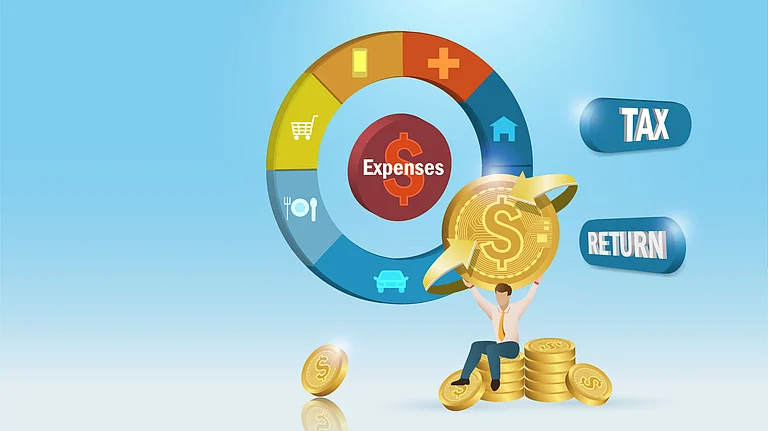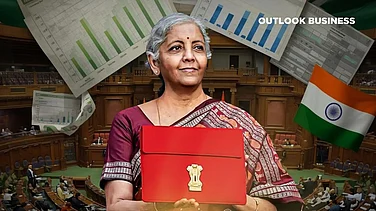As union budget 2025 nears, investors want the central government to offer tax relief on employee stock options (ESOPs) to make start-up ecosystem more employees friendly because it benefit both the company and its workers. Firms use ESOPs to attract, retain and reward staffers; while workers can become equity shareholders and take advantage from the company’s growth.
It sounds like a win-win situation, but a roadblock lies in the current tax structure. ESOPs are taxed twice in India which can undermine its potential. Industry players opine that employees who join early and take risks should be rewarded and not taxed when ESOP is exercised as opposed to when there is a sale of those equities.
“Employees are the backbone of a start-up’s success or failure. Taxing them when they exercise options creates a huge barrier. They should be taxed when there’s an actual gain, ensuring liquidity to meet the tax obligation. So, India must reconsider is ESOP taxation regulation if it wants to attract top talent,” said Archana Jahagirdhar, Managing Partner, Rukam Capital.
How ESOPs Are Taxed in India?
Generally, ESOPs are taxed at two points - First, at the time of exercise, the difference between the fair market value (FMV) of the shares and the exercise price is considered a perquisite and is taxed as salary income. In simple words, the employer is under an obligation to deduct tax from employees’ in-hand salary at the time of the allotment of shares which takes place on the exercise date.
Second, at the stage of sale of shares, difference between sale price and the above FMV is considered as capital gain. Hence, the income generated from shares sold will be taxed according to long term and short term capital gains norm i.e., 12.5% if an employee holds shares for more than two years and 20% tax on equities held for less than or equal to 12 months.
And for eligible start-ups, the above perquisite tax (at the first point) is deferred to the earlier of the following events: five years from the end of the year of exercise, the date of the employee selling the shares, or the date of the employee leaving the company. According to DPIIT, an eligible start-up refers to the company which is not more than 10 years old, incorporated as a private limited or partnership and have an annual turnover of less than Rs 100 crore.
What Do Investors Demand?
Venture capitalists or angel investors advocate for deferring tax on ESOPs until shares are sole, especially for start-ups in sectors like artificial intelligence (AI) and spacetech. In addition, they suggest aligning India’s tax rules with global standards to attract international talent, and clarifying the taxation of alternative equity compensation models.
For instance, Romania has a preferential tax treatment for equity shares that meet certain conditions mentioned in its tax laws (the plan must qualify as a Stock Option Plan). If these conditions are met, employees don’t have to pay income tax or social charges when the shares are granted, vest, or exercised under the salary tax rules. Instead, taxes are postponed until the shares are sold and they are taxed as capital gains.
“Eligible criteria include recognition by the Department for Promotion of Industry and Internal Trade (DPIIT) under the Startup India initiative, incorporation date, turnonver limits, etc. As this limits the number of employees who can benefit from this initiative, the turnover criteria should be relaxed to at least 250 crores and the range of incorporation date should be extended by at least five years,” Alok Agrawal, Partner, Deloitte India told Outlook Business.
Gouri Puri, Partner at Shardul Amarchand Mangaldas & Co echoed similar sentiments, saying the government should consider extending “deferment of ESOP tax for employees of eligible start-ups under Section 80-IAC” to all DPIIT registered ventures. Currently, India has more than 1.6 lakh registered start-ups.
Should India Tax Residents on ESOPs Earned Abroad?
The taxability of income on ESOPs depends upon the residential status of a taxpayer on the date of exercising the options. An employee’s income is taxable if he is an Indian resident. If a non-resident but not ordinarily resident have exercised options or sold shares outside India, then he is not liable to pay tax in India.
However, there are several disclosures in the income tax return forms for foreign assets. An employee may have to disclose foreign holdings under FA of his income tax return, in case he owns ESOPs of a foreign company.
Agrawal said those employees who spend part of the vesting period on employment related assignments outside India (and partly in India) should not be taxed in India on the relevant India proportion of perquisite if they are non-residents for India tax purposes at the time of exercise of options.
“This will avoid double tax challenges for such employees and avoid administratively cumbersome withholding tax obligations for the Indian employer entities,” he said.
What Should Be Fair Tax System for ESOPs?
Puri asserted that India should focus on three key principles for an ideal taxation framework on ESOPs --- simplicity, fairness, and growth enablement. She said taxation should be straightforward and occur only when employees realise a monetary benefit. Additionally, tax regime should uniformly apply regardless of nature of instrument or qualifications of employer.
On the other hand, Agrawal said the government should address areas related to the mode of capital gains calculation for “returning Indians” who have already got taxed on exercise of options in the overseas country.
“Tax rules should be clarified that such individuals cannot be taxed on the equivalent of FMV at the point of exercise and only the balance can be considered for capital gains calculation,” he added.
As the debate around ESOP taxation intensifies, all eyes are now on FM Nirmala Sitharaman’s budget if India's upcoming economic blueprint will bring a tax framework for ESOPs that strengthens India’s start-up ecosystem.
































